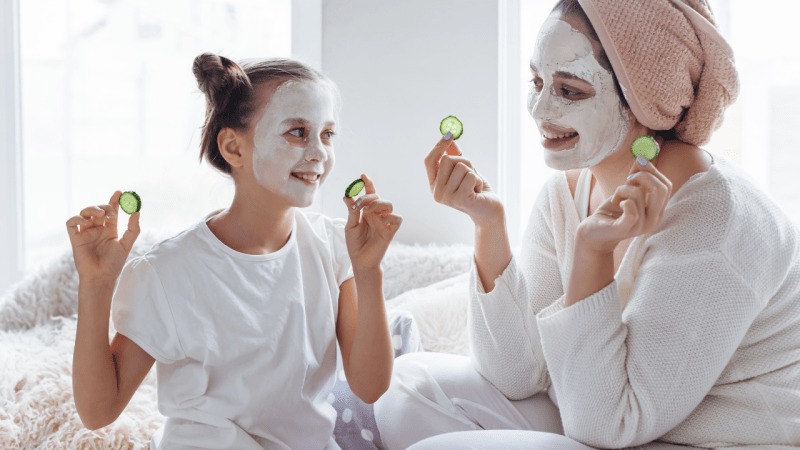In recent years, the idea of self-care has grown far beyond bubble baths and green smoothies. Today, self-care is being redefined as a more holistic approach to living—one that includes not only wellness and relaxation, but also aesthetics, personal expression, and physical recovery. Whether it’s through a new look, a healthier spine, or simply taking time to reconnect with oneself, people are taking a more intentional and personalized approach to their well-being. Let’s explore how self-care is evolving and what it really means to look good, feel good, and live a balanced life.
The Changing Landscape of Self-Care
Self-care used to be considered a luxury, something reserved for the occasional spa day or weekend retreat. But the modern interpretation is both broader and more accessible. It includes practices that nourish the mind, body, and appearance on a daily basis. More importantly, it’s no longer just about taking a break from stress—it’s about actively building a life that prevents burnout in the first place.
From the workplace to home routines, people are making small but significant changes to prioritize their well-being. This shift isn’t just trendy; it reflects a deeper cultural recognition that we function better when we care for ourselves in every dimension.
Aesthetics as a Form of Self-Care
For many, looking good plays a big role in feeling good. Personal grooming, fashion choices, and cosmetic enhancements are becoming increasingly recognized as valid forms of self-care. It’s not about vanity—it’s about self-expression and self-respect. When people invest in their appearance, they often feel more confident and in control, which can have a positive impact on their mental health.
Take, for example, the growing popularity of creative and personalized dental accessories like solid grillz. Once a niche trend, these sparkling pieces have become a bold form of self-expression and artistry. They’re a way for individuals to celebrate their identity and stand out, making aesthetics not just about beauty but about empowerment.
Whether it’s through a new hairstyle, skincare routine, or a unique accessory, embracing aesthetics as part of self-care is all about creating a version of yourself that you’re proud to show the world.
The Role of Physical Wellness
While aesthetics cover the outer self, physical wellness focuses on the inner workings of the body—how we feel, move, and function daily. This aspect of self-care often goes beyond diet and exercise. It includes how we treat injuries, manage stress physically, and ensure our bodies are aligned and operating properly.
One increasingly popular approach to physical self-care is chiropractic care. Visiting a chiropractor clinic in Houston, for instance, can provide real, tangible benefits for people dealing with back pain, neck stiffness, or joint issues. Chiropractors help realign the spine and improve posture, which not only relieves pain but also enhances overall body function.
People who receive regular chiropractic care often report better sleep, increased energy, and improved mobility—factors that significantly contribute to feeling good in day-to-day life. Especially in a fast-paced city like Houston, having a reliable clinic nearby can be a game-changer for long-term health.
Emotional and Mental Balance
Looking good and feeling physically well are vital parts of self-care, but emotional and mental health is just as crucial. In fact, it’s the glue that holds all other aspects together. Practices like journaling, meditation, and therapy are becoming more normalized and accessible, allowing individuals to process their feelings and manage their mental state proactively.
Additionally, setting boundaries, cultivating supportive relationships, and disconnecting from digital overload are important strategies for maintaining mental clarity. A well-balanced mind not only improves our day-to-day mood, but it also enhances our decision-making, focus, and resilience.
Living Balanced: The Ultimate Goal
When people talk about balance in life, it often sounds like a vague, idealized concept. But in the context of modern self-care, balance is about creating a life that aligns with your values and needs. It means prioritizing what’s truly important to you—whether that’s spending time with family, advancing in your career, or making time for your health.
True self-care isn’t one-size-fits-all. It’s about finding what works for you and sticking with it. For some, that might mean weekly therapy and meal prepping. For others, it might be taking time to express themselves creatively, investing in their appearance, or making regular visits to a trusted chiropractor to stay physically aligned.
Balance also means being flexible and kind to yourself. Some weeks will be harder than others, and that’s okay. The key is consistency and intention. When self-care becomes a regular part of your lifestyle rather than a rare indulgence, it builds a foundation for long-term well-being.
Integrating Self-Care into Everyday Life
Making self-care a part of daily life doesn’t have to be complicated. In fact, the most effective routines are often the simplest. Here are a few ways to incorporate self-care into your schedule:
- Start your day mindfully. Whether it’s through meditation, stretching, or enjoying your coffee without distractions, begin your day with intention.
- Move your body regularly. It doesn’t have to be a full workout—just a walk around the block or a few minutes of stretching can make a big difference.
- Make time for appearance-related rituals. Grooming, dressing well, or trying out a new look can give you a boost of confidence and set a positive tone.
- Schedule regular physical check-ins. Visits to professionals like chiropractors can keep your body in tune and help catch issues before they escalate.
- Protect your mental space. Say no when you need to, take breaks from screens, and allow yourself time to reset.
- Celebrate small wins. Acknowledge your progress, no matter how small. Self-care is a journey, not a destination.
The Future of Self-Care
As society continues to evolve, so does our understanding of what it means to take care of ourselves. Self-care is no longer a fringe concept—it’s a necessity. People are learning that caring for themselves on multiple levels allows them to show up better in every part of life, from work to relationships to personal goals.
By embracing a more inclusive and personalized definition of self-care—one that includes looking good, feeling good, and living balanced—we’re setting a new standard for what it means to be truly well. And as more people begin to adopt these practices, self-care will continue to grow not just as a trend, but as a transformative movement toward healthier, happier lives.








